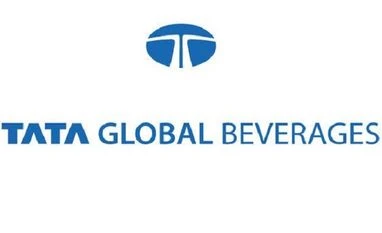Tata Global Beverages (TGBL) is refusing to let go of any chance to milk the Rs 1-trillion organised dairy market even after its plan to buy Prabhat Dairy fell apart due to valuation issues.
The branded tea, coffee and water arm of the Tata group is now evaluating three to four firms for a possible buyout, according to a person familiar with the discussions.
“The company is doing due diligence of three to four companies, including a Hyderabad-based one, and should be able to close a deal by March,” said the person. “Dairy will be the company’s prime focus area as it offers an opportunity for local procurement and global marketing.”
Besides an attractive valuation, the size of the target company will be an important criterion as the chairman (N Chandrasekaran) “likes large companies”, something, that helps in quick market access, the person said.
A communiqué from the company, however, said they “do not comment on market speculation and that they remain open to inorganic opportunities that are in line with the company’s strategic growth plans”.
The company’s entry into the dairy segment is part of a larger strategy charted by Chandrasekaran, which includes diversifying TGBL’s product portfolio, scaling up existing business and exiting loss-making ones.
The person cited above said acquisition was one of the key strategies for the company to scale up existing businesses and getting into newer ones. Over the past one year or so, TGBL has looked at various opportunities, the person said, citing the instance of Hector Beverages that owns the Paper Boat brand. “The company was keen on Paperboat, but it didn’t fructify as valuations were getting tougher.” The person also said that at one point the company even considered buying out Complan.
Acquisition talks on
- TGBL in the process of doing due diligence of 3-4 firms
- Company hoping to close deal with one of them by March
- Besides valuation, size of target dairy company an important criterion
- Part of larger strategy to diversify TGBL beyond tea and coffee
In India, the organised dairy market has largely been the preserve of state cooperatives. Apart from the Gujarat Cooperative Milk Marketing Federation (which markets the Amul brand) in the west, there is the National Dairy Development Board (which owns Mother Dairy) in the north, and the Karnataka Co-operative Milk Producers’ Federation (which owns Nandini) in the south.
Hatsun Agro in Tamil Nadu, Heritage Foods in Andhra Pradesh and Parag Milk Foods in Maharashtra are some private players. Britannia and Patanjali also have a presence in the sector; as do Nestlé and French major Lactalis.
ITC, too, has big plans for the sector, including launching an array of milk-based beverages and frozen desserts from its Kapurthala plant in Punjab.
According to R S Sodhi, managing director of the Gujarat Cooperative Milk Marketing Federation, multinationals here are unable to operate at the margins that local players do — one of the reasons why another French player, Danone, exited the market earlier this year.
“Our cost of production is hardly anything on packaged milk. For value-added products, we are capable of manufacturing at half the price of what multinationals do. These savings are passed on to consumers,” Sodhi said.
Private players, regional or national, ensure their sourcing requirements are in place. Either they set up greenfield projects or source from third-party players or acquire companies that assure them fixed supply of milk, said experts.
Abneesh Roy, senior vice-president, research (institutional equities), Edelweiss, explains that acquisitions in dairy has been about getting these core strengths in place apart from a ready market. “Investments in dairy, especially at the back-end, are significant. If an acquisition can give you all of this — assured supply of milk, cold chain, dairy plant, ready market — then it is natural for a company eying the space or wanting to expand to go down that route,” he said.
In the past few years, Lactalis has acquired Tirumala in the south and then Anik Industries in the north. Parag acquired Danone’s dairy business including its plant in the north earlier this year and Amul won the bid to run the Delhi Milk Scheme, a dairy retail unit that was started by India’s first president Rajendra Prasad in 1959, last month.
Unlock 30+ premium stories daily hand-picked by our editors, across devices on browser and app.
Pick your 5 favourite companies, get a daily email with all news updates on them.
Full access to our intuitive epaper - clip, save, share articles from any device; newspaper archives from 2006.
Preferential invites to Business Standard events.
Curated newsletters on markets, personal finance, policy & politics, start-ups, technology, and more.
)